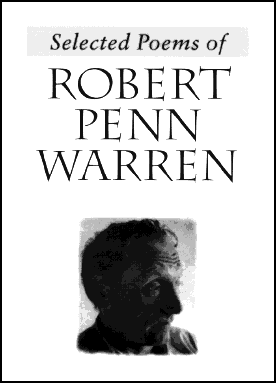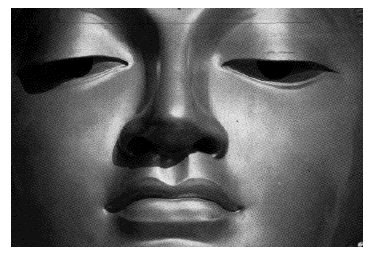The novel is, too, awash with quasi-Mystical, Eternal References --- as gnomish as those out of the gnostic version of the Bible:Perhaps that was the moment when Slade made his fortune. How life is strange and changeful, and the crystal is in the steel at the point of fracture, and the toad bears a jewel in its forehead, and the meaning of moments passes like the breeze that scarcely ruffles the leaf of the willow.
Or, the poor country boy Willie, teaching himself law,
Upstairs in his room with his face bent down over a law book, his face puzzled and earnest and the tousle of hair hanging, and who was not with them but the fire, but was up there in that room, but not even in that room, either, but in a room, a world, inside himself where something was swelling and growing painfully and dully and imperceptibly like a great potato in a dark, damp, cellar.
Or, when the telegram comes, and you pick it up, and hold it in your hand, before opening it, and
you feel like there's an eye on you, a great big eye looking straight at you from miles and dark and through walls and houses and through your coat and vest and hide and sees you huddled up way inside, in the dark which is you, inside yourself, like a clammy, sad little foetus you carry around inside yourself...and it lifts up its sad little face and its eyes are blind, and it shivers cold inside you for it doesn't want to know what is in that envelope. It wants to lie in the dark and not know, and be warm in its not-knowing.
The jazz people used to call this "riffing."
Oh, there is the biblical mystery of it all, the flow of language, but there are also the details, like this description of Willie's aged father, giving an old man's hug to Willie's wife, a passage straight out of James Agee:
He just reached his right arm a little around her shoulder, not quite a hug, just putting his arm there, and you could see his knobby, crooked, brown old hand, which looked too big for the wrist-bone, and the hand gave her shoulder two or three little tired, apologetic pats. Then the hand dropped at his side beside the blue jean pants leg.
And then, for those of us who cut our literary teeth on it (we all wanted to write like Penn Warren --- probably did so for far too long), there was the sheer comedy and rhythm of the dialogue. This is Willie, the Governor, in the car, telling Jack, his
all-purpose aide (and narrator of the book) to find a lawyer for one of the country folk who's just been jailed for getting drunk and stabbing someone in a juke joint:
"Jack, make a note to find out something about Malaciah's boy and the killing."
"What's his name?" I asked.
"Hell, I don't know, but he's a good boy."
"Malaciah's name, I mean," I said.
"Malaciah Morfee," the Boss said.
I had my notebook out now and wrote it down, and wrote down, stabbing.
"Find out when the trial is set and get a lawyer down. A good one, and I mean a good one that'll know how to handle it and let him know he God-damn well better handle it, but don't get a guy that wants his name in lights."
"Albert Evans," I said, "he ought to do."
"Uses hair-oil," the Boss said. "Uses hair-oil and slicks it back till the top of his head looks like the black ball on a pool table. Get somebody looks like he didn't sing with a dance band. You losing your mind?"
§ § §For the first 150 pages, Penn Warren has us, has us so tight that we would have to be dead if we want to lay it down. From the very first words, "You follow Highway 58, going north-east out of the city, and it is a good highway and new..." he has us, Penn Warren does, and he can do anything he wants with us: can make us laugh, can make us sigh, can make us get teary with the sheer power of words set together with such a sense of rightness that we think that somehow he has made contract with the gods and they have given him the fire of words, stringing them together so that we are carried with him and Jack and Willie and Duffy on the highways, on those hot hard highways stretching out there with the glaze of heat always disappearing before the rush of the black car whispering over the pavement, going through the white heat that hovers over the countryside, turns everything to hot sweet-smelling power from the famished red earth.
See what it can do to you?
 I've probably read All the King's Men six times, and so now, number seven, I pick it up to see what modifications Noel Polk has made in this "Restored Edition" (he drew them from the original manuscript in the Beinecke Library at Yale).
I've probably read All the King's Men six times, and so now, number seven, I pick it up to see what modifications Noel Polk has made in this "Restored Edition" (he drew them from the original manuscript in the Beinecke Library at Yale).
I have to tell you that, despite his protestations, the changes don't amount to a hill of beans. There are some puzzles: for one, in his first drafts back in 1943, Penn Warren started out calling the Boss not Willie Stark but "Willie Talos," with all the classic overtones --- Talos was the bronze man in Greek mythology, made by Hephaestus.... "Talos" suggests "talon," the sharp weapon of birds of prey says Polk --- but the 1945 editors at Harcourt Brace suggested that the writer get a name with less of "a foreign flavor." They were right: Talos is arty, would appeal to all us knee-jerk classicists, but the word Stark has going for it the perfect... well... starkness that we need for someone like the Boss.
There are a couple of bonuses that turn up for us old King's Men fans. One is that the editors also suggested that Penn Warren hurry it up some --- get Willie into the book at the beginning, without any detours to Mason City. So sometime before the final version came out, the author penned an alternative first chapter which is just as knock-'em-dead powerful as the one that finally made it into print... with some special treats in it. For instance, here is the passage above, the one about "Perhaps that was the moment when Slade made his fortune," but expanded somewhat, a regular anonymous Greek chorus added at the end:
How life is strange and changeful, and the crystal is in the steel at the point of fracture, and the toad bears a jewel in its forehead, and the meaning of moments passes like the breeze that scarcely ruffles the leaf of the willow. Do you see that old man with the peg-leg stumping toward us down the street. Yes, I see him. Do you know what he brings you in his hand? No, I don't know. He brings you happiness. Really? Do you see that old woman with the mole on her chin? Yes, I see her. Do you know what her name is? No. Her name is Darkness and she will lean over you like a mother.
Like a mother!
§ § §But, alas, there is one thing that Noel Polk cannot do for us and Penn Warren and All the King's Men. That is, he can't keep this car from finally running off the road and bashing itself to death on a great moss-laden oak at the side of the pavement and turning turtle into the green pea-laden swamp. Because the whole work is fatally flawed.
Our author knew how to get it cranked up and running, but he didn't know squat about how to shut it down. A third of the way into the book, when the Boss is finally made governor, there comes a detour for Jack's PhD thesis on his grandfather, Cass Mastern. The editors at Harcourt wanted to cut that one out and they were right. It doesn't work, it doesn't fit, and it kills the rhythm we have going up to that point.
The story gets even more convoluted when we find that Anne Staunton, Jack's one time sweetie, the one he grew up with, has taken up with the Boss. As a plot line it sounds plausible; but as Penn Warren laid out the characters, it is a disaster of the first water.
For he made these people jump off the page at us, and even the author --- the gods are not always in charge --- is not powerful enough to make them do something that they weren't meant to do. The book flounders, the dialogue turns lethargic, the descriptions get soft, we find ourselves impatient with the meandering. If there had been someone, some Promethean editor, for example, to take Penn Warren in hand and prove to him that there are here three or four books mashed together, snarling at each other like the Medusas, needing to be hacked at and separated --- perhaps he could have been convinced to put out several different volumes.
Too bad it never came to pass, for we are left with a wonderful fast tale that suddenly turns scattered, makes us long for something to stop the car from slamming off the highway, flipping itself, subsiding in a steamy death there in a swamp of too-occlusive words.


 I've probably read All the King's Men six times, and so now, number seven, I pick it up to see what modifications Noel Polk has made in this "Restored Edition" (he drew them from the original manuscript in the Beinecke Library at Yale).
I've probably read All the King's Men six times, and so now, number seven, I pick it up to see what modifications Noel Polk has made in this "Restored Edition" (he drew them from the original manuscript in the Beinecke Library at Yale).